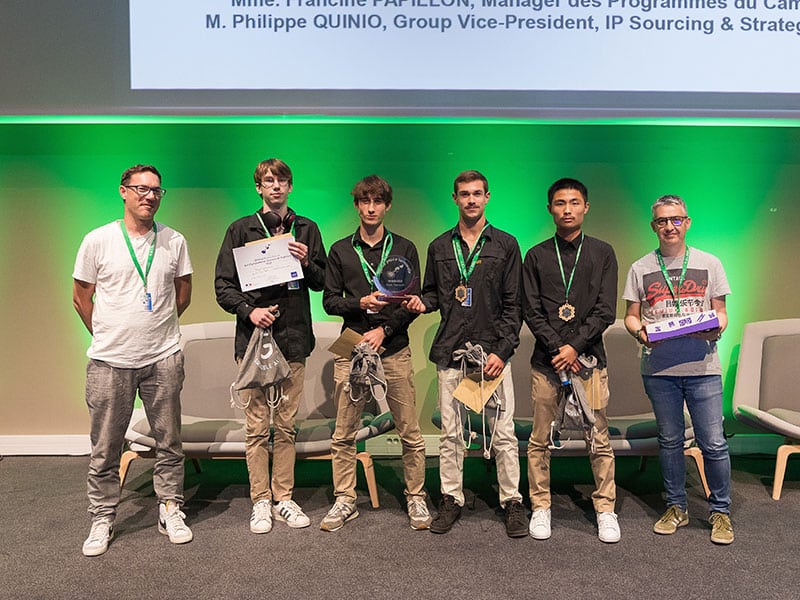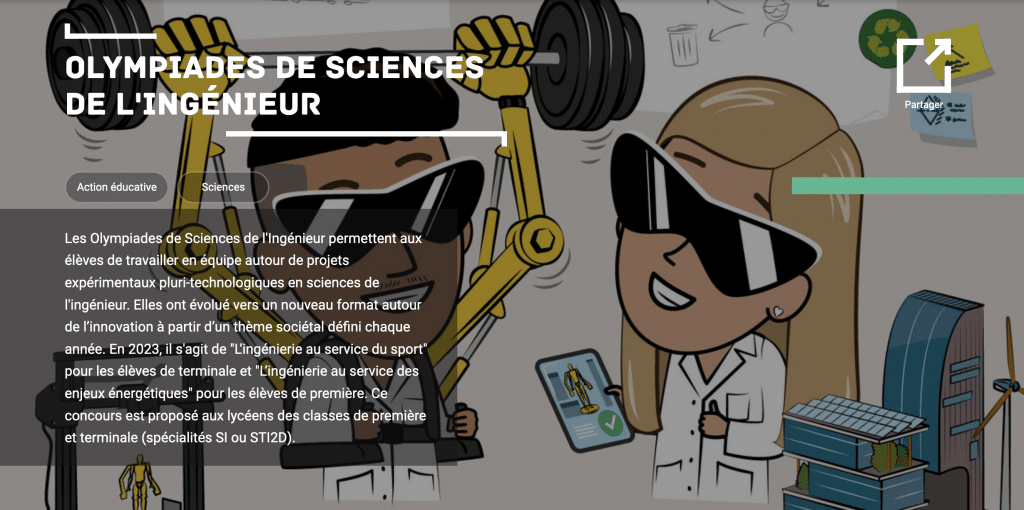On Monday 13 May, the academic final of the Engineering Science Olympiad will be held at the Arbois-Méditerranée environmental technology park. The event is organised by the UPSTI association and volunteer teachers, in conjunction with the Aix-Marseille Metropolitan Council, Elles Bougent PACA and, for the first time, with the support of the Centre de Recherche et d'Enseignement des Géosciences de l'Environnement (CEREGE) and its scientists..
A key annual event for young scientists, this national competition is open to secondary school students in their first and last years of secondary school (specialising in SI, STI2D). Students work in teams. Each team is made up of two to five students, supervised by one or two teachers. The projects carried out by the teams must include multi-technology experimental work in the field of Engineering Sciences.
The event will bring together more than 140 students from 1ère and Terminale Générale and Terminale Technologique, who will be competing in the national final.
Working in mixed teams of 4 or 5 students, the 39 teams will compete in ingenuity to come up with solutions to problems related to two themes: engineering for sport and engineering for energy.
The 3 winning teams will go on to the national final of the Olympiades des Sciences de l'Ingénieur in Paris the following week.
The Arbois Technopôle Forum:
8.30 a.m. Welcome
9.00 Welcome and opening speech to the juries
10.00 Presentation of projects by students
Amphithéâtre CEREGE Arbois, Bâtiment Pasteur:
13h30 Frédéric GuilleuxDirector of the Technopôle de l'Arbois
14h00 Irène SchimmelpfennigCNRS Scientist (PhD)/ CEREGE
How can the environmental impact of research be reduced? CEREGE's commitment to eco-responsibility.
Torn between our mission to observe and analyse in order to better understand our planet's climatic and environmental systems and our conviction that we must reduce the impact of our activities on these systems, CEREGE staff have embarked on a participatory process to reconcile these two objectives.
14h25 Didier VandammeLecturer in Geophysics at AMU/CEREGE
The little-known professions in geology
Earth sciences offer a wide range of jobs at technician level, both in the laboratory and in the field. Aix-Marseille University's Geological Technician career pathway provides an opportunity to explore these professions and to gain an insight into the world of work, with numerous lectures by professionals and, above all, a work-study period in a company in L3.
14h50 Anne AlexandreCNRS Research Director - Head of International Relations and Science in the South - CEREGE Equality Unit
Sophie ViseurHead of the Resources, Hydrosystems and Carbonates Team at CEREGE
Science for women
Breaking out of stereotypes!Two women scientists will talk about their careers, after explaining what gender stereotypes are and how they impact on the place of women in science.
16.00 Prize-giving ceremony
Organisers
Odile Perini, teacher at Lycée Fourcade in Gardanne
Stéphane Morière and Vincent Honorat, Lycée Vauvenargues, Aix en Provence



